When your regular prescription runs out and the pharmacy says it’s unavailable-no stock, no backorder, no timeline-it’s more than an inconvenience. It’s a health risk. For people who rely on specific doses, allergen-free formulas, or unique delivery methods, a drug shortage isn’t just a delay. It’s a crisis. That’s where compounding pharmacies step in. They don’t just fill prescriptions. They rebuild them.
What Exactly Is a Compounding Pharmacy?
A compounding pharmacy is not your local CVS or Walgreens. These are specialized labs where pharmacists mix, alter, or create medications from scratch using pure ingredients. They don’t mass-produce pills. They build them one at a time, exactly as a doctor and patient need them.
Think of it like custom baking. A regular pharmacy sells the same chocolate chip cookie every day. A compounding pharmacy makes a gluten-free, sugar-free, nut-free version-with extra chocolate, because that’s what the patient needs. It’s personal. It’s precise. And when commercial drugs disappear, it’s often the only option left.
Why Do Drug Shortages Happen?
Every year in the U.S., between 300 and 400 medications go out of stock. Some are simple: a factory shuts down. Others are complex: a raw ingredient becomes too expensive, or a manufacturer stops producing a low-profit drug. Antibiotics, hormone therapies, pain meds, and even basic IV fluids are all on the list.
These aren’t rare events. In 2023, shortages hit thyroid medication, injectable morphine, and pediatric amoxicillin all at once. Patients with chronic conditions-like hypothyroidism or epilepsy-can’t just switch brands. Their bodies react differently. That’s when compounding becomes essential.
How Compounding Pharmacies Fill the Gaps
Here’s how they solve real problems:
- Custom strengths: A child needs 5mg of a medication, but the only pill made is 10mg. A compounding pharmacy can make it exactly 5mg.
- Allergen-free formulas: If you’re allergic to lactose, dye, or preservatives, standard pills can cause rashes, stomach pain, or worse. Compounded versions remove those triggers.
- Alternative forms: Can’t swallow pills? They can turn a tablet into a flavored liquid, a cream you rub on your skin, or a lozenge that dissolves under your tongue.
- Discontinued drugs: If a drug is pulled from the market but still medically necessary, a compounding pharmacy can recreate it using the same active ingredient.
For example, a 72-year-old with Parkinson’s struggles to swallow pills. Her doctor switches her from tablets to a transdermal gel compounded with the same medication. Her symptoms stabilize. She sleeps better. That’s not theory-it’s daily practice in compounding pharmacies across the country.
Who Uses Compounded Medications?
It’s not just rare cases. Here’s who benefits most:
- Children: About 40% of kids can’t swallow pills. Flavored liquids make treatment possible.
- Elderly patients: Around 30% have trouble swallowing. Creams and gels help them stay on track.
- Allergy-sensitive individuals: 15-20% of people react to dyes, gluten, or preservatives in commercial meds.
- Patients with hormone imbalances: Bioidentical hormone therapy is almost always compounded because commercial versions don’t match natural body chemistry.
- Chronic pain sufferers: Topical creams with multiple pain relievers in one formula reduce side effects and improve results.
A 2023 study found that 85% of patients with allergies to commercial drug ingredients stuck to their treatment plan when switched to compounded versions. That’s not a small win. It’s life-changing.
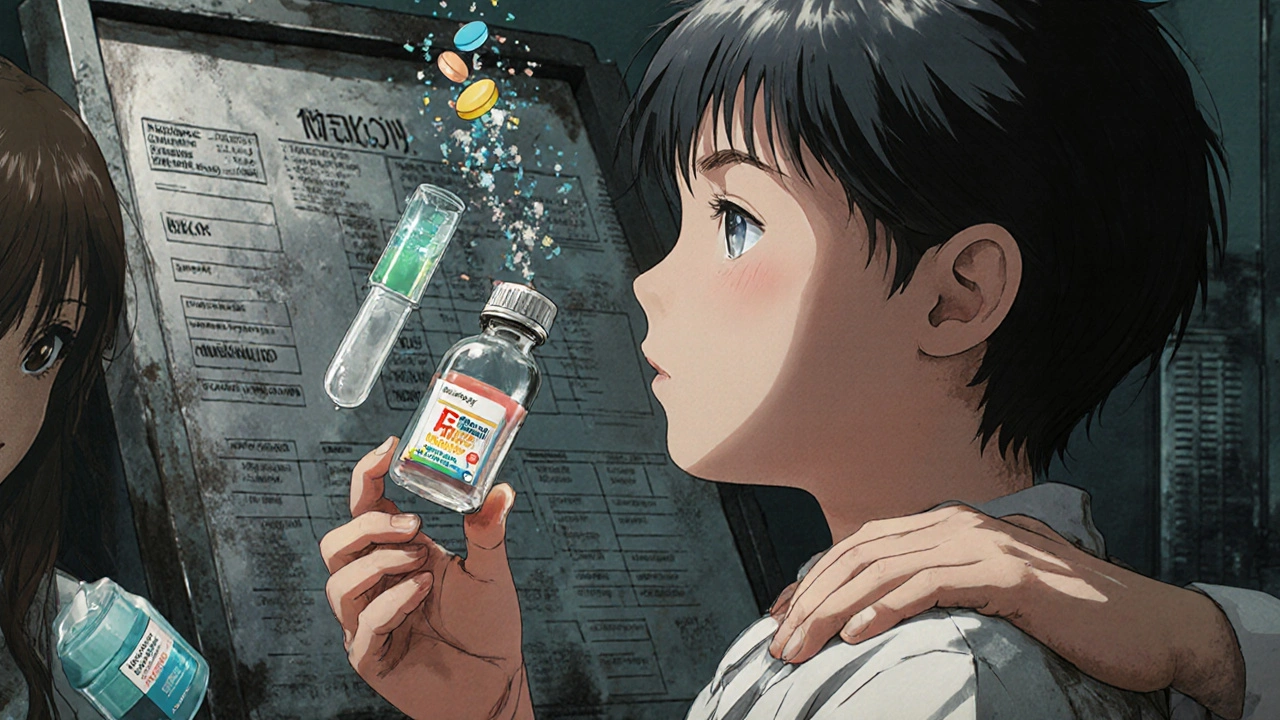
What Compounding Pharmacies Can’t Do
They’re not magic. There are limits.
They can’t make biologics-like insulin or cancer drugs made from living cells. They can’t copy patented formulas exactly. And they can’t replace FDA-approved drugs when those drugs are available and safe.
Some doctors overprescribe compounded meds when a standard option exists. One study found that 15% of compounded prescriptions could have used a regular drug. That’s risky. Compounded meds don’t go through the same pre-market testing. They’re safe when made right-but only if they’re truly necessary.
How to Find a Reputable Compounding Pharmacy
Not all compounding pharmacies are equal. Look for these signs:
- PCAB accreditation: Only about 1,200 of the 7,500 compounding pharmacies in the U.S. are accredited by the Pharmacy Compounding Accreditation Board. This means they pass strict quality, safety, and hygiene tests.
- USP compliance: They follow USP <795> for non-sterile and USP <797> for sterile preparations. Ask if they have clean rooms and proper equipment.
- Transparent sourcing: They use FDA-registered suppliers for raw ingredients. No sketchy bulk chemicals.
- Clear communication: They explain the formula, why it’s needed, and how long it’ll take.
Ask your doctor for a referral. Or search the PCAB website for accredited pharmacies near you. Don’t settle for a pharmacy that won’t answer your questions.
Cost, Insurance, and Wait Times
Here’s the hard truth: compounded meds are expensive.
Insurance covers about 55% of them-compared to 85% for standard prescriptions. That means nearly half of patients pay out of pocket. A compounded cream might cost $80-$150. A liquid suspension could be $120. That’s a lot if you’re on a fixed income.
And you can’t pick it up today. Most take 24 to 72 hours to prepare. Sterile mixes (like injections) take longer. Plan ahead. Don’t wait until your last pill is gone.
But here’s what patients say: “I’d pay more and wait longer if it means I can take my medicine without vomiting or breaking out in hives.” That’s the real trade-off.

What the Experts Say
Pharmacists who specialize in compounding say it’s not a workaround-it’s a lifeline.
Dr. Steven P. Harris, a pharmacotherapy specialist, puts it simply: “If a patient can’t take the commercial version, compounding isn’t optional. It’s medical necessity.”
The FDA agrees. They state clearly that compounding is appropriate when an FDA-approved drug isn’t “medically appropriate” for a patient. Allergies? Dosage issues? Swallowing problems? Those count.
But they also warn: “Don’t use compounding just because it’s convenient.” If the drug is available, safe, and effective-use it. Compounding is for when there’s no other choice.
The Future of Compounding
The market for compounded medications is growing fast. It was worth $11.2 billion in 2022 and is expected to hit $15.8 billion by 2027. Why? Because drug shortages aren’t going away. And personalized medicine is.
Now, some pharmacies are using digital tools to reduce errors by 37%. Others are testing how long compounded formulas last with better stability checks-extending shelf life by up to 40%. One big shift? Genetic testing. More patients are getting DNA-based dosing recommendations. Compounding pharmacies are the only ones who can make those custom doses.
Regulators are tightening rules, too. Since the 2012 fungal meningitis outbreak tied to bad compounding, laws have gotten stricter. That’s good. It means safer meds. But it also means fewer bad actors-and more trust in the ones that do it right.
What to Do If Your Drug Is Unavailable
If your prescription is out of stock:
- Ask your pharmacist: “Is there a compounding option?”
- Call your doctor: Explain the shortage and ask if they’ll write a compound prescription.
- Find a PCAB-accredited pharmacy near you.
- Ask about cost, insurance, and how long it’ll take.
- Don’t skip doses. Don’t split pills. Don’t use someone else’s medicine.
There’s always a solution. It just might take a little more effort.
Are compounded medications safe?
Yes, when made by an accredited pharmacy that follows USP standards. Compounded meds don’t go through the same FDA approval process as mass-produced drugs, but they’re regulated under state pharmacy boards and federal guidelines like the Drug Quality and Security Act. Look for PCAB accreditation-it’s the gold standard for safety and quality.
Can I get compounded meds without a prescription?
No. All compounded medications require a prescription from a licensed provider. Pharmacists can’t legally compound drugs without a valid prescription tied to a specific patient’s medical need. Any pharmacy offering to compound without one is breaking the law.
Why won’t my insurance cover my compounded prescription?
Insurance companies often see compounded meds as experimental or unnecessary unless proven medically essential. Many require prior authorization or proof that no commercial alternative exists. Some only cover them for specific conditions like hormone therapy or pediatric formulations. Always ask your pharmacy to submit a letter of medical necessity.
How long does it take to get a compounded medication?
Most take 24 to 72 hours. Simple non-sterile formulas (like creams or liquids) can be ready in a day. Sterile preparations-like injections or IV solutions-take longer because they require extra testing and clean-room procedures. Always plan ahead and don’t wait until you’re out of medicine.
Can compounding pharmacies make brand-name drugs?
No. They can’t copy patented drugs exactly. But they can recreate the active ingredient in a different form or strength if the brand-name version is unavailable. For example, if a brand-name thyroid pill is out of stock, a compounding pharmacy can make a tablet with the same levothyroxine dose-just without the fillers or dyes you’re allergic to.
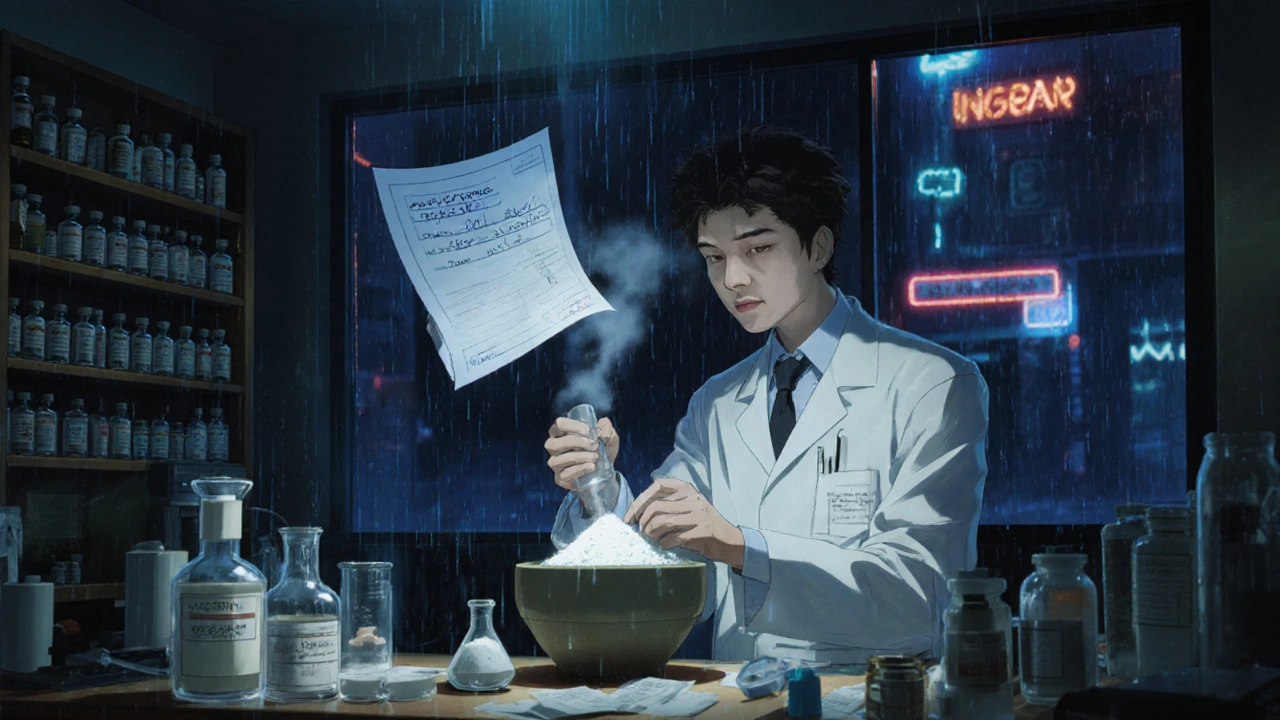

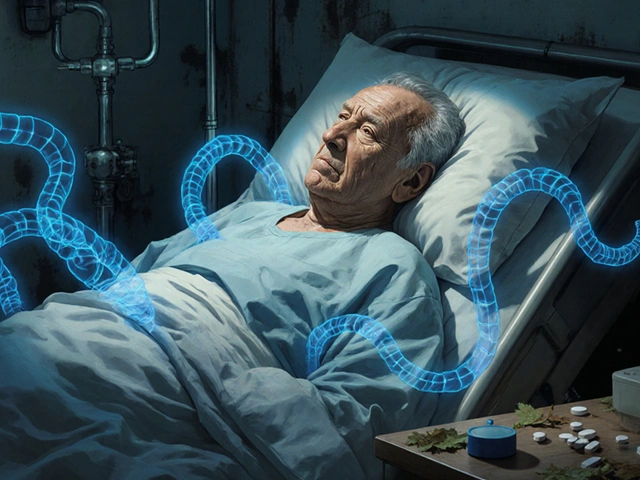
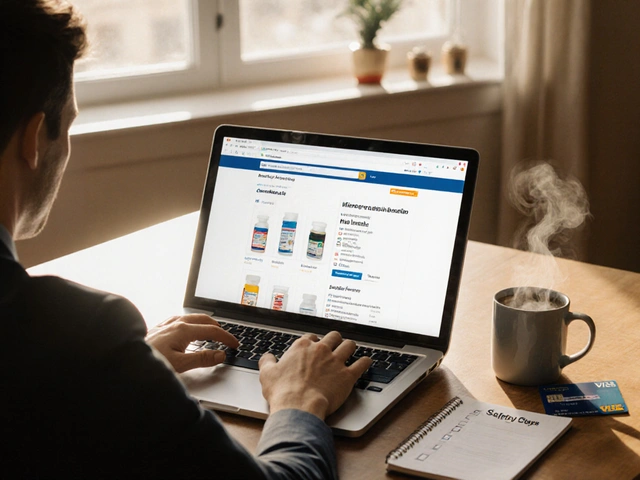
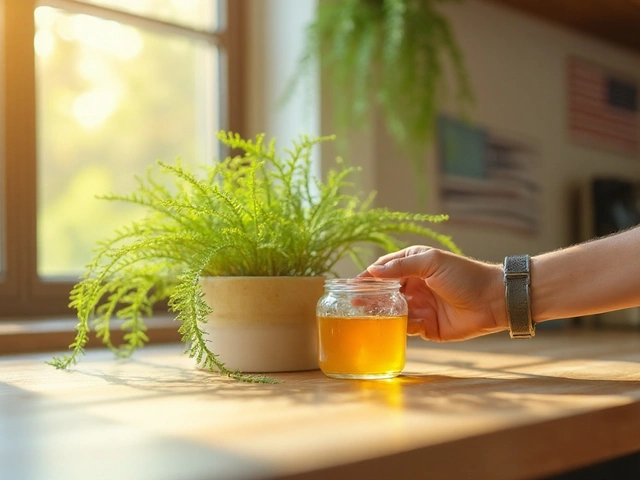
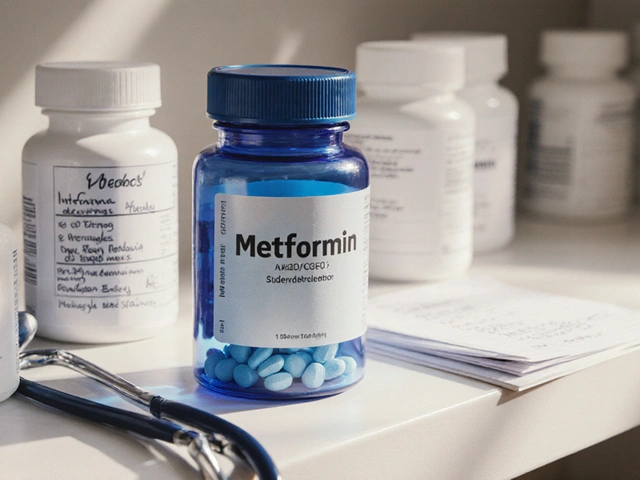
Andrew Forthmuller
November 13, 2025 AT 08:37My kid’s amoxicillin was out for months-compounded liquid saved us. No more vomiting, just cherry-flavored medicine and happy mornings.
Nicole M
November 14, 2025 AT 23:24I didn’t even know this was a thing until my grandma couldn’t swallow her thyroid pill. Turned into a cream-she cried because she finally slept through the night. Wild.
Charles Lewis
November 15, 2025 AT 06:43The structural integrity of pharmaceutical accessibility in the United States has been increasingly compromised by supply chain fragility and profit-driven manufacturing decisions. Compounding pharmacies, while not a panacea, represent a critical adaptive mechanism within the healthcare ecosystem, restoring therapeutic continuity for patients whose physiological requirements are not accommodated by mass-produced pharmaceuticals. Their role is not ancillary-it is constitutive of equitable medical care.
Renee Ruth
November 16, 2025 AT 07:22Oh great, another post glorifying unregulated magic potions. Let’s not forget the 2012 fungal meningitis deaths from dirty compounding labs. And now we’re supposed to trust some guy in a basement with a mortar and pestle making my insulin? No thanks. I’ll wait six months for the FDA-approved version.
Samantha Wade
November 17, 2025 AT 11:28While it is true that compounded medications serve a vital function for patients with specific medical needs-such as allergen avoidance, dosage precision, or alternative delivery methods-it is equally imperative to emphasize that these preparations must be sourced exclusively from PCAB-accredited facilities adhering to USP <795> and <797> standards. Without rigorous quality control, compounding transitions from a lifeline to a liability. Patients must advocate for transparency, demand documentation of ingredient sourcing, and refuse to accept anything less than full regulatory compliance. This is not a compromise-it is a non-negotiable standard of care.
Elizabeth Buján
November 17, 2025 AT 14:06i just found out my anxiety med was compounded because i’m allergic to the dye in the regular one… and now i don’t feel like i’m gonna pass out every morning? i’m crying. like, actually crying. this isn’t just science-it’s magic. thank you to whoever made this post. i didn’t know i could ask for this.
manish kumar
November 17, 2025 AT 15:17In India, we face similar issues with drug shortages, especially in rural areas where access to branded medicines is limited. Compounding pharmacies, though less formalized here, are often the only source for customized treatments. I’ve seen elderly patients receive liquid antibiotics with sugar-free flavoring because they couldn’t swallow tablets. The challenge is regulation-without proper oversight, quality varies wildly. But the need? Absolutely real. We need a system that supports ethical compounding, not just bans it out of fear.
Arpita Shukla
November 17, 2025 AT 20:51You people are naive. Compounding is a loophole. The FDA doesn’t approve these because they’re not safe. You think a pharmacy in Nebraska can match the purity of Pfizer? Please. And don’t even get me started on insurance-of course they won’t cover it. Because it’s not a real drug. It’s a DIY experiment with your life.
Benjamin Stöffler
November 18, 2025 AT 10:05Let’s be clear: compounding pharmacies are not ‘solutions’-they are symptoms. Symptoms of a broken pharmaceutical industry that prioritizes profit over patient needs. We’ve created a system where a child’s medication is unavailable because it’s ‘not profitable,’ and then we celebrate a pharmacist who, with a $500 mixer, fixes what corporations broke. This isn’t innovation. It’s triage capitalism. And we’re applauding the paramedic while the ambulance is still on fire.
Mark Rutkowski
November 19, 2025 AT 01:47There’s something deeply human about a pharmacist sitting at a bench, measuring out grains of medicine by hand, knowing this exact dose will let someone breathe again. It’s the opposite of assembly lines and shareholder meetings. It’s care, carved in milligrams. I don’t know if it’s the future of medicine-but I know it’s the soul of it. And we should protect that like a sacred thing.
Ryan Everhart
November 19, 2025 AT 08:14So let me get this straight-you’re telling me the only way I can take my medicine without breaking out in hives is to pay $120 and wait three days… and the FDA says it’s fine? Meanwhile, my insurance company says ‘nope’ and ‘try a different drug’? Sounds like the American healthcare system is just one big game of ‘Who’s the dumbest patient?’
vanessa k
November 19, 2025 AT 11:57My dad’s on a compounded pain cream now. He said it’s the first time in years he’s slept without painkillers. I’m so glad we found this. I wish more doctors knew about it.